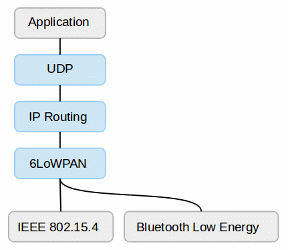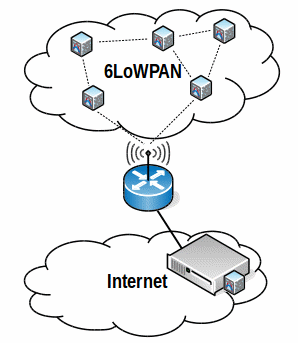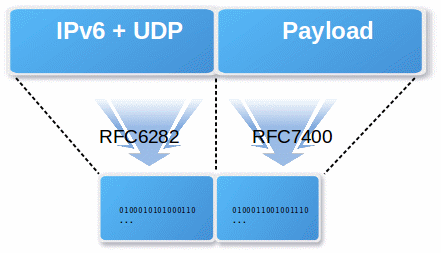Effnet IoT™
The term Internet of Things essentially means a very large number of devices, "things", interconnected with IP. Some of the application areas of these devices are home and building automation, transportation, medical and healthcare systems, energy and infrastructure management, and environmental monitoring. Estimates of the number of devices in the future are in the billions range. To address and access all of these devices, IPv6 is essential, which adds significant header overhead that mandates use of header compression. The devices are considered to have limited computing and power resources and to be interconnected using wireless access technologies such as 802.15.4 or Bluetooth Low Energy.
Using the radio (transmit/receive data) is relatively expensive with respect to computational power (processing of data), hence it is crucial to minimize the amount of traffic sent and received. Header Compression and payload compression are essential components to reduce radio usage in a trade off with computing power. Effnet IoT-HC™ is fully compliant with IETF RFC 6282 for header compression of the IPv6 protocol and RFC 7400 for payload compression over 6LoWPAN networks.

Effnet Header Compression for IoT, IoT-HC™
Compressing the wireless traffic sent and received in Low-Power Wireless Personal Area Network (LoWPAN) devices has been the subject of several proposals aiming to utilize the power resources efficiently. Header compression is a trade off between getting small packet headers which pays off in less receiver/transmitter on time and the additional computing resources needed for compressing and decompressing the traffic.

The most accepted standards for compression of IPv6 traffic over LoWPANs are IETF RFC 6282 (Compression Format for IPv6 Datagrams over IEEE 802.15.4-Based Networks) and IETF RFC 7400 (6LoWPAN-GHC: Generic Header Compression for IPv6 over Low-Power Wireless Personal Area Networks (6LoWPANs)). The schemes for compression of IPv6, IPv6 options, UDP and ICMPv6 headers described in IETF RFC 6282 provides for fast compression of a limited set of headers while IETF RFC 7400 describes a more computationally complex method for compressing any IPv6 traffic, including the payload.
Effnet Header Compression for IoT compresses and decompresses traffic according to both IETF RFC 6282 and 7400. The size of the compressed traffic is normally optimal with respect to size, however when compressing traffic according to IETF RFC 7400, decreased need for computation resources can dynamically be traded for decreased compression efficiency.

Features
- Fully compliant with IETF standards RFC 6282 & RFC 7400
- Integrated compression solution with the same API for RFC 6282 and RFC 7400.
- Lightweight implementation including all features suitable for devices with limited resources
- Highly portable ANSI C code with no operating system dependencies
- Platform and endianness (byte-order) independent
Services
Effnet provides support and maintenance services covering problem reporting, bug fixes, updates, training, consulting and integration. A sample application code together with detailed documentation covering well defined and easy to use API is provided to speed up the process of integration.
Data Sheet
